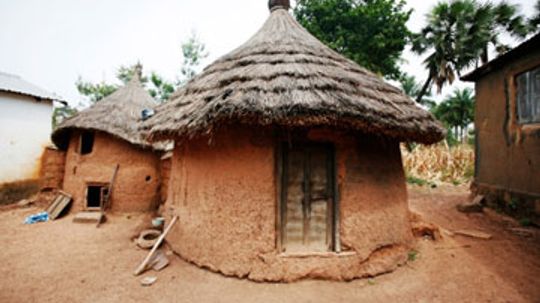Exploring the Art and Science Behind Traditional Building Techniques
An Ancient Craft Preserving Cultural Heritage
Adobe construction, a traditional building technique that has stood the test of time, is deeply rooted in Banyarwanda culture. This age-old craft combines indigenous knowledge with sustainable materials to create structures that are not only aesthetically pleasing but also environmentally friendly.
Meticulous Preparation: The Foundation for Success
Prior to commencing an adobe construction project, meticulous preparation is essential. It begins with selecting the ideal soil composition, typically consisting of clay-rich earth mixed with sand and organic matter. This carefully balanced mixture ensures optimal strength and durability once dried.
The soil is then thoroughly moistened to enhance workability before being left to rest for several days. During this period, any impurities settle at the bottom while excess water evaporates from the surface.
Once ready, the soil undergoes a process known as “puddling,” where it is repeatedly stomped on or mixed by hand until it reaches a homogeneous consistency. This labor-intensive task requires skillful coordination between builders who rhythmically move across the site.
The Artistry of Adobe Construction
With preparations complete, skilled craftsmen begin molding adobe bricks using wooden molds or their hands. Each brick must be carefully shaped and compacted to ensure uniformity and structural integrity throughout the entire structure.
Assembling these bricks into walls involves applying mud mortar between each layer while maintaining precise alignment and plumbness. The craftsmanship required during this stage cannot be overstated; it demands both technical expertise and an artistic eye for detail.
A Sustainable Solution for Modern Challenges
In today’s world, where sustainability is a pressing concern, adobe construction offers an eco-friendly alternative to conventional building methods. The use of locally sourced materials reduces carbon emissions associated with transportation while promoting the preservation of cultural heritage.
Furthermore, adobe structures possess excellent thermal properties, providing natural insulation against extreme temperatures. This inherent energy efficiency contributes to reduced reliance on artificial heating and cooling systems, resulting in long-term cost savings for homeowners.
Preserving Tradition for Future Generations
The enduring legacy of adobe construction lies not only in its physical structures but also in the knowledge passed down through generations. By embracing this traditional craft and incorporating it into contemporary architectural practices, we can ensure that Banyarwanda culture remains alive and thriving.
In Conclusion
Adobe construction stands as a testament to the ingenuity and resourcefulness of Banyarwanda builders. Through meticulous preparation, skilled craftsmanship, and sustainable practices, these remarkable structures continue to shape our landscapes while preserving our cultural heritage for future generations to cherish.



